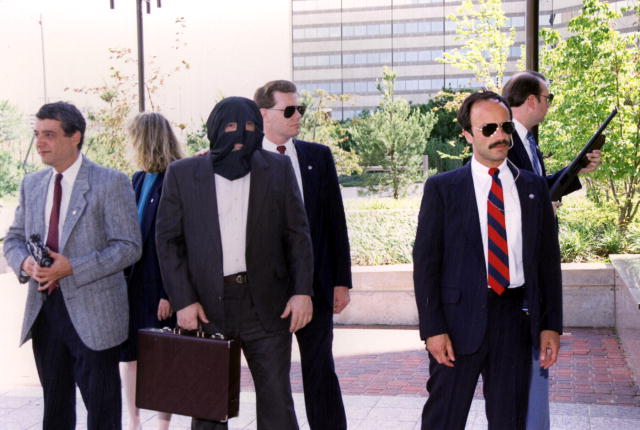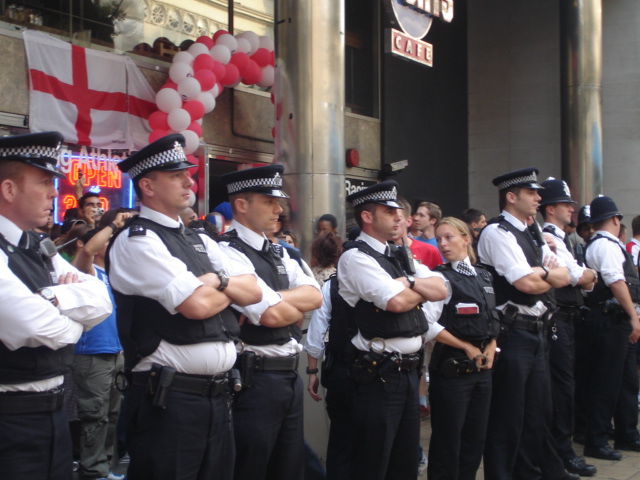|
UK Protected Persons Service
The UK Protected Persons Service (UKPPS) is a service provided by the government of the United Kingdom that provides personal protection to people at risk of serious harm, such as those requiring witness protection or at threat from domestic abuse, honour-based violence, or organized crime. It works with the National Crime Agency and British police forces. The service can provide protected people with new identities and homes. The UKPPS was set up in 2013, and was reorganized to be under centralized control by the National Crime Agency in 2019. , the service provided protection for around 3000 people at a cost of around £20 million per year. Section 4 of the Serious Organised Crime and Police Act 2005 makes provision for witness protection services. See also * United States Federal Witness Protection Program The United States Federal Witness Protection Program (WPP), also known as the Witness Security Program or WITSEC, is a witness protection program codified through 18 U ... [...More Info...] [...Related Items...] OR: [Wikipedia] [Google] [Baidu] |
Government Of The United Kingdom
ga, Rialtas a Shoilse gd, Riaghaltas a Mhòrachd , image = HM Government logo.svg , image_size = 220px , image2 = Royal Coat of Arms of the United Kingdom (HM Government).svg , image_size2 = 180px , caption = Royal coat of arms of the United Kingdom, Royal Arms , date_established = , state = United Kingdom , address = 10 Downing Street, London , leader_title = Prime Minister of the United Kingdom, Prime Minister (Rishi Sunak) , appointed = Monarchy of the United Kingdom, Monarch of the United Kingdom (Charles III) , budget = 882 billion , main_organ = Cabinet of the United Kingdom , ministries = 23 Departments of the Government of the United Kingdom#Ministerial departments, ministerial departments, 20 Departments of the Government of the United Kingdom#Non-ministerial departments, non-ministerial departments , responsible = Parliament of the United Kingdom , url = The Government of the United Kingdom (commonly referred to as British Governmen ... [...More Info...] [...Related Items...] OR: [Wikipedia] [Google] [Baidu] |
Witness Protection
Witness protection is security provided to a threatened person providing testimonial evidence to the justice system, including defendants and other clients, before, during, and after a trial, usually by police. While a witness may only require protection until the conclusion of a trial, some witnesses are provided with a new identity and may live out the rest of their lives under government protection. Witness protection is usually required in trials against organized crime, where law enforcement sees a risk for witnesses to be intimidated by colleagues of defendants. It is also used at war crime, espionage and national security issues trials. Witness protection by country Not all countries have formal witness protection programs; instead, local police may implement informal protection as the need arises in specific cases. Canada Canada's Witness Protection Program Act received royal assent on June 20, 1996. The program is run by the Royal Canadian Mounted Police (RCMP), w ... [...More Info...] [...Related Items...] OR: [Wikipedia] [Google] [Baidu] |
Domestic Abuse
Domestic violence (also known as domestic abuse or family violence) is violence or other abuse that occurs in a domestic setting, such as in a marriage or cohabitation. ''Domestic violence'' is often used as a synonym for ''intimate partner violence'', which is committed by one of the people in an intimate relationship against the other person, and can take place in relationships or between former spouses or partners. In its broadest sense, domestic violence also involves violence against children, parents, or the elderly. It can assume multiple forms, including physical, verbal, emotional, economic, religious, reproductive, or sexual abuse. It can range from subtle, coercive forms to marital rape and other violent physical abuse, such as choking, beating, female genital mutilation, and acid throwing that may result in disfigurement or death, and includes the use of technology to harass, control, monitor, stalk or hack. Domestic murder includes stoning, bride burning, honor ... [...More Info...] [...Related Items...] OR: [Wikipedia] [Google] [Baidu] |
Honor-based Violence
An honor killing (American English), honour killing (Commonwealth English), or shame killing is the murder of an individual, either an outsider or a member of a family, by someone seeking to protect what they see as the dignity and honor of themselves or their family. Honor killings are often connected to religion, caste and other forms of hierarchical social stratification, or to sexuality. Most often, it involves the murder of a woman or girl by male family members, due to the perpetrators' belief that the victim has brought dishonor or shame upon the family name, reputation or prestige. Honor killings are believed to have originated from tribal customs. They are prevalent in various parts of the world, as well as in immigrant communities in countries which do not otherwise have societal norms that encourage honor killings. Honor killings are often associated with rural and tribal areas, but they occur in urban areas too. Although condemned by international conventions and ... [...More Info...] [...Related Items...] OR: [Wikipedia] [Google] [Baidu] |
Organized Crime
Organized crime (or organised crime) is a category of transnational, national, or local groupings of highly centralized enterprises run by criminals to engage in illegal activity, most commonly for profit. While organized crime is generally thought of as a form of illegal business, some criminal organizations, such as terrorist groups, rebel forces, and separatists, are politically motivated. Many criminal organizations rely on fear or terror to achieve their goals or aims as well as to maintain control within the organization and may adopt tactics commonly used by authoritarian regimes to maintain power. Some forms of organized crime simply exist to cater towards demand of illegal goods in a state or to facilitate trade of goods and services that may have been banned by a state (such as illegal drugs or firearms). Sometimes, criminal organizations force people to do business with them, such as when a gang extorts money from shopkeepers for " protection". Street gangs may oft ... [...More Info...] [...Related Items...] OR: [Wikipedia] [Google] [Baidu] |
National Crime Agency
The National Crime Agency (NCA) is a national law enforcement agency in the United Kingdom. It is the UK's lead agency against organised crime; human, weapon and drug trafficking; cybercrime; and economic crime that goes across regional and international borders; but it can be tasked to investigate any crime. The NCA has a strategic role as part of which it looks at serious crime in aggregate across the UK, especially analysing how organised criminals are operating and how they can be disrupted. To do this, it works closely with regional organised crime units (ROCUs), local police forces, and other government departments and agencies. It is the UK's point of contact for foreign agencies such as Interpol, Europol and other international law enforcement agencies. On a day-to-day basis, the NCA assists police forces and other law enforcement agencies (and vice versa) under voluntary assistance arrangements. In extremis, the NCA Director General has the power to direct a chief o ... [...More Info...] [...Related Items...] OR: [Wikipedia] [Google] [Baidu] |
Serious Organised Crime And Police Act 2005
The Serious Organized Crime and Police Act 2005 (c.15) (often abbreviated to SOCPA or SOCAP) is an Act of the Parliament of the United Kingdom aimed primarily at creating the Serious Organised Crime Agency. It also significantly extended and simplified the powers of arrest of a constable and introduced restrictions on protests in the vicinity of the Palace of Westminster. It was introduced into the House of Commons on 24 November 2004 and was passed by Parliament and given Royal Assent on 7 April 2005. Measures to introduce a specific offence of "incitement to religious hatred" were included in early drafts of the Act, but then dropped so the bill would pass before the 2005 general election. The offence has since been created by the Racial and Religious Hatred Act 2006. Extent of application The Act applies principally to England and Wales but s.179 permits the extent or designates sections applying only to Scotland and/or Northern Ireland; additionally s.179(9) extends the a ... [...More Info...] [...Related Items...] OR: [Wikipedia] [Google] [Baidu] |
United States Federal Witness Protection Program
The United States Federal Witness Protection Program (WPP), also known as the Witness Security Program or WITSEC, is a witness protection program codified through 18 U.S. Code § 3521 and administered by the United States Department of Justice and operated by the United States Marshals Service that is designed to protect threatened witnesses before, during, and after a trial. A handful of states – California, Connecticut, Illinois, New York, and Texas – and Washington, D.C., have their own witness protection programs for crimes not covered by the federal program. The state-run programs provide less extensive protections than the federal program, in part because state governments lack the ability to issue federal documents, such as social security cards, verifying the new identity of protected witnesses. History The WITSEC program was formally established under Title V of the Organized Crime Control Act of 1970, which in turn sets out the manner in which the United State ... [...More Info...] [...Related Items...] OR: [Wikipedia] [Google] [Baidu] |
Law Enforcement Agencies Of The United Kingdom
There are a number of agencies that participate in law enforcement in the United Kingdom which can be grouped into three general types: * Territorial police forces, who carry out the majority of policing. These are police forces that cover a police area (a particular region) and have an independent police authority. Current police forces have their grounding in the Police Act 1996 (in England and Wales), a combination of Police (Scotland) Act 1967 and Police and Fire Reform (Scotland) Act 2012 (in Scotland) and the Police (Northern Ireland) Act 2000 (in Northern Ireland), which prescribe a number of issues such as appointment of a chief constable, jurisdiction and responsibilities. * National law enforcement bodies, including the National Crime Agency and national police forces that have a specific, non-regional jurisdiction, such as the British Transport Police. The Serious Organised Crime and Police Act 2005 refers to these as 'special police forces', not including the NCA w ... [...More Info...] [...Related Items...] OR: [Wikipedia] [Google] [Baidu] |






